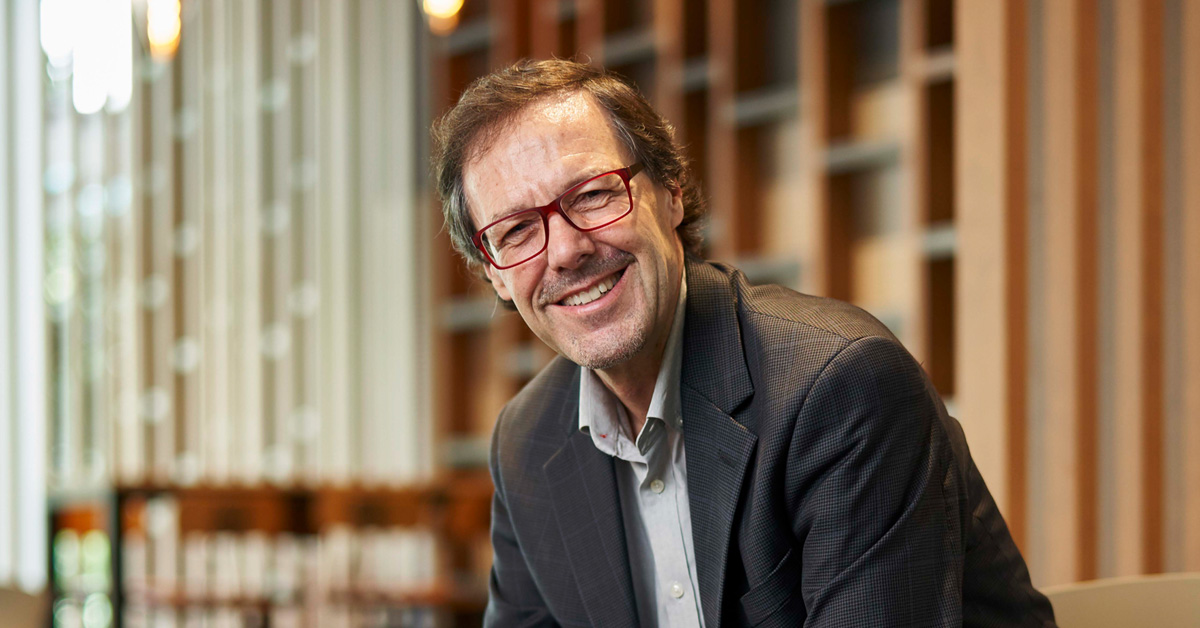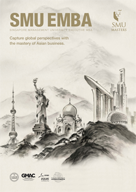
Before social distancing became the new normal, Professor Don Ferrin counted Argentine tango as one of his interests. “It is very difficult to learn, but also very beautiful,” he says of this dance form.
As someone who teaches Organisational Behaviour and Human Resources at Singapore Management University’s Lee Kong Chian School of Business (SMU LKCSB), it is perhaps not surprising that he also relates the tango to a subject that is the focus of his academic research — trust.
“Dancing is like a conversation between a leader and a follower, who must interpret and express the music together,” he elaborates. “I think that in Argentine tango there are answers to some of the most challenging questions of how to build trust between leaders and followers.”
He first got interested in studying the concept of trust because “I found the concept so simultaneously important, beautiful, and enigmatic”, says Prof Ferrin. For the past 25 years, he has been focusing on the importance of trust in organisational settings, such as the trust that workers have in their leaders and vice versa.
“I think it can be argued that there’s nothing more fundamental to human relationships than trust,” says Prof Ferrin. “So I feel very fortunate to have focused my research on something so core to us as human beings.”
Indeed, it is this fascination with human nature that led him to his current career as an academic. Growing up in Southern California in the United States, he was a serious classical pianist, and fascinated with different cultures. At one point, he dropped out of college to travel around the world. Intrigued by the world of work, he also sought out an eclectic variety of jobs, including stints as a piano rebuilder, a church organist, and even as a groundskeeper for a miniature golf course.
By the 1980s, though, he seemed set on a more conventional path, first completing a degree in business administration, then spending the next seven years in public accounting in Los Angeles and Hong Kong. Then came what he calls a mid-life crisis. “I learned that I was uninterested in accounting, but fascinated by people: different cultures, different personalities, group dynamics, leadership qualities, politics, and interpersonal relationships,” says Prof Ferrin.
Rather than continue to build his career in a very stable field, Prof Ferrin checked out from the world of accounting and enrolled himself in a PhD programme focused on strategic management and organisation. This kickstarted his passion for the study of trust, culture, and interpersonal influence.
The next step in his journey of exploring new cultures and adventures was a move to Singapore with his family, joining SMU when the university was just three years old. “I love Southeast Asia, especially the combination of cultures in Singapore. My wife and I wanted our kids to grow up here. And I grasped the opportunity to join in building a top business school nearly from scratch.”
One of the classes he teaches right now is Negotiating in Business, which is part of SMU’s Executive Master of Business Administration (EMBA) programme.
Negotiation is, of course, an area in which a nuanced understanding of human nature is crucial. And while most EMBA students are already experienced negotiators through their professional experiences, this class is able to provide them with scientifically validated frameworks, principles, and concepts that can be used to understand and interpret their past negotiation experience and guide their future negotiations.
Much like a practice for a dance performance, negotiation simulations allow EMBA students to experience both sides of a negotiation and give and receive detailed and transparent feedback to and from their negotiation counterparts.
“This kind of insight and feedback is not really possible in real-life negotiations,” Prof Ferrin notes. “Consequently, very experienced negotiators are often the ones who get most excited and gain the most from a class like this. That’s because they are able to obtain frameworks they can use to understand their existing experience, and because they receive feedback in a way they never have before.”
In other words, students learn the most when they can experience other perspectives. Prof Ferrin believes that this ability to step out of one’s subjectivity and empathise with a different way of experiencing the world may not come easily, but it is something that lies within the capabilities of human nature.
“It is difficult to overcome projection bias (the belief that others are more like us than they really are), completely debias oneself, and truly see the world from another’s perspective,” he says. “But it is such a valuable and eye-opening tool when done effectively.”
Speak to our Admissions Advisors
Lee Kong Chian School of Business
Postgraduate Admissions
Singapore Management University,
SMU Administration Building
81 Victoria Street, Singapore 188065
Tel: +65 6828 0882
Join us at the upcoming events
Via Gerolamo Cardano, 1, 20124 Milano MI, Italy
1 Raffles Drive, Makati Avenue, 1224, Makati City
Bayerstraße 41, 80335 München, Germany
